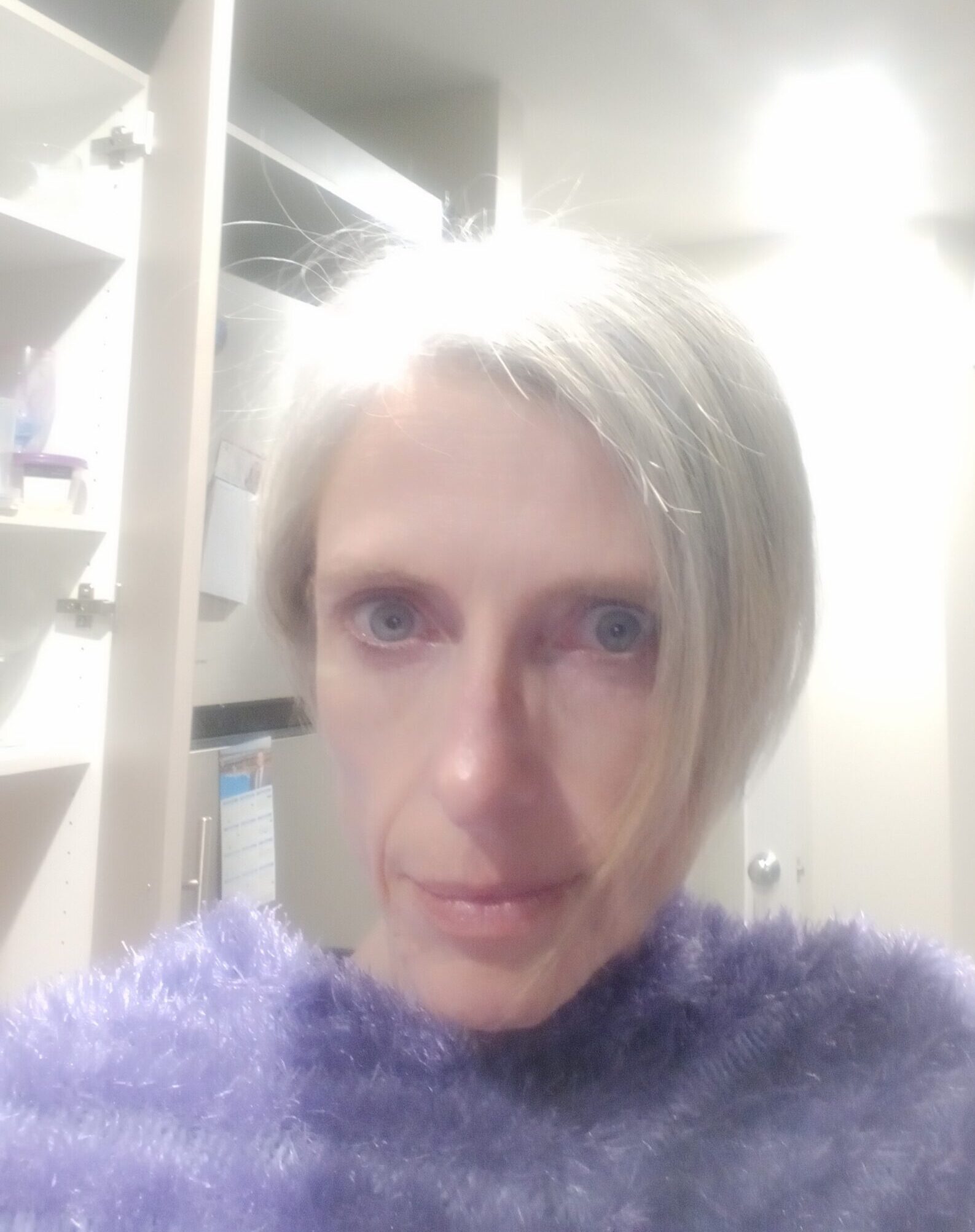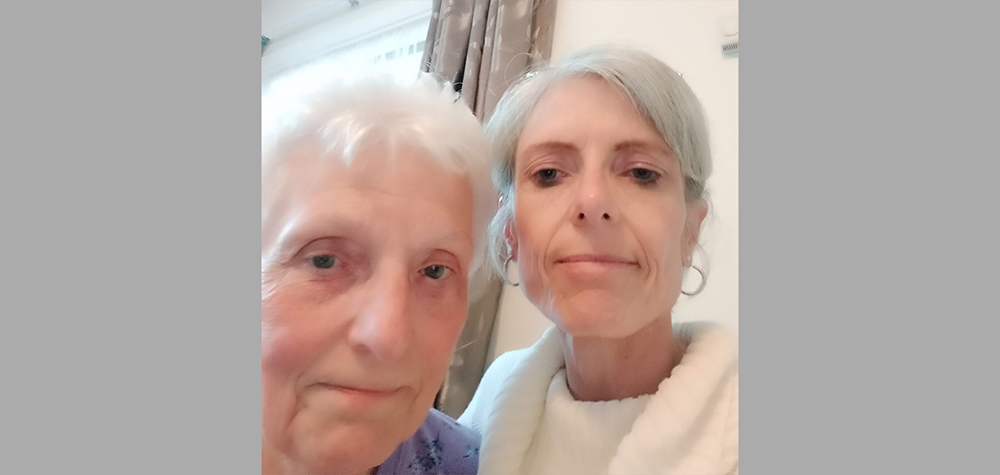Instead, her elderly parents John and Della Connolly, in their 60s and 70s respectively, have been caring for her at their home — and believe she would have died otherwise.
“My husband and I have been potentially watching our daughter die,” Della Connolly, a nurse aide, told Kaitiaki. “It had been a nightmare watching Emma fading away and nobody cares.”
Diagnosed with anorexia nervosa at 14, their daughter Emma Gallagher was admitted twice to the South Island eating disorders service (SIEDS) in the 1990s. She again was treated by them again in 2021 as an outpatient.
‘It just seems everywhere we go for help we are declined . . . They basically just washed their hands of her.’
The family’s latest ordeal began when Gallagher, who is 49 and weighs just 37kg, relapsed following a relationship breakup at the end of 2023 and related financial pressures.
“I became very mentally unwell,” Gallagher told Kaitiaki. “I had a plan to . . . take my own life. I was not getting any sleep at all — I was just in a dark hole and couldn’t get out of it.”
Her GP was concerned about her suicidal thoughts, and in March 2024 referred her to Te Whatu Ora’s mental health crisis team.
Gallagher initially turned down their help, and continued to spiral. In June, fearing for her life, her parents tried to get her admitted to an acute mental health ward at Hillmorton Hospital — but were told the ward did not have expertise in eating disorders.

Gallagher agreed to see the mental health crisis team in July, after a counsellor also referred her. She was given a weekend of residential respite care and a change in medication, and encouraged to continue her counselling and dietitian support as well as practising mindfulness.
‘If being 37 kilos doesn’t indicate that I have an issue, what has to happen?’
But, continuing to struggle with suicidal thoughts and eating, Gallagher asked to be admitted as an inpatient to SIEDS so she could gain weight and feel better physically and mentally. She told her GP this would help her cognitively get through her mental health crisis — an approach which was backed by her dietitian, her medical notes show.
Gallagher has provided her medical files to Kaitiaki.
Te Whatu Ora responds: ‘We have empathy’
Hillmorton Hospital general manager of specialist mental health Vicki Dent told Kaitiaki that Gallagher’s referral was declined due to clinical reasons, not lack of beds.
“While we have empathy for Emma on her health journey and acknowledge the distress and concern her parents have for the wellbeing of her daughter, Emma’s referral to SIEDS was declined based on her clinical presentation and management at that time,” she said via email.
South Island Eating Disorders Services (SIEDS) had a triage team of senior clinicians who reviewed referrals from different parts of the system, she said. A decision was then made on prioritising them.
Dent acknowledged a growing demand for eating disorder services, but said SIEDS was “working hard to manage this”.
Such disorders varied in intensity, severity and duration but most could be treated on an outpatient basis or managed in other areas of the health-care system, such as general practice, crisis resolution and ACC, she said.
There were currently 33 people waiting for admission to SIEDS’ outpatient service and six people for an inpatient bed — which were available for people in the South Island who had a primary diagnosis of an eating disorder and had not been able to make progress from evidence-based outpatient treatment, she said. These people continued to be under the care of specialist mental health teams.
SIEDS was based in Canterbury and provided a specialist inpatient service for the South Island, alongside specialist outpatient treatment for those in Canterbury.
As it was not an emergency service, all its referrals were triaged weekly. Those needing more urgent help were advised to use crisis resolution services or be referred to the emergency department by their GP. However, people could be re-referred to SIEDS.
Her GP then referred her to SIEDS for inpatient care and feeding on July 30. But SIEDS turned her away, saying her situation was more of a stress-related mental health crisis than an eating disorder problem.
“We would not consider a referral to the eating disorders inpatient unit based on her current presentation,” SIEDS nurse manager wrote in its referral letter shared with Kaitiaki by Gallagher.
SIEDS acknowledged the GP and dietitian concerns about Gallagher’s suicidal ideation and severe malnourishment in the letter, but advised that she should continue with her therapy for now.
‘I hope you reconsider seeing her, as her function is now affected by her psych. issues.’ — GP
Gallagher had also changed her mind about wanting inpatient care as she was worried about stopping work, the letter noted.
On August 20, her GP again referred Gallagher for urgent SIEDS inpatient support, saying she was “chronically suicidal”, severely malnourished and no longer able to work.

“Our practice HIP [health improvement practitioner] has done her best to help her but her issues are all complex and not suitable to be managed by me. I hope you reconsider seeing her, as her function is now affected by her psych. issues,” the GP wrote.
But again, SIEDS declined the referral, saying her issues were related to pre-existing trauma which she was already in therapy for.
However, she was referred to a local Māori mental health trust, Purapura Whetu, whose support worker did provide “amazing” general support for the whole family, Gallagher said.
“She comes to GP appointments with me, helps me set goals . . . she’s a really good support.”
Specialist help ‘declined’
In September, Te Whatu Ora’s crisis mental health team also discharged Gallagher, saying they were having difficulty engaging with her and she should continue with existing counselling, dietitian and Purapura Whetu support.
Her GP’s request in September for a community nurse to visit Gallagher at home was also declined.
“It just seems everywhere we go for help we are declined,” Connolly said. “They basically just washed their hands of her. There’s just nowhere for Emma to get help — there’ s nowhere for us to get help.”
Her local MP, Reuben Davidson, wrote in her support but after unsuccessfully seeking intervention from the ministers of health and mental health, Della Connolly contacted Kaitiaki.
‘I feel like I’ve got this huge team of people who are lifting me up and holding me at the moment – but it shouldn’t be them who’re having to do this.’
In October, with the support of Nationwide Health and Disability Advocacy Services, Gallagher also laid a complaint with Te Whatu Ora over SIEDS’s refusal to treat her, warning her current therapy wasn’t enough and she was at “high risk of dying”.
In a response seen by Kaitiaki, Te Whatu Ora Canterbury said as Gallagher’s weight had remained stable [around 37kg] since she was last seen by SIEDS in 2022, and her blood tests showed she was medically stable, there was no indicate her anorexia was worsening.
The average weight of an 11-year-old child is 35kg.

“Based on the medical information available, our assessment is that you are not of this outcome [high risk of dying] from your long-standing anorexia,” their October 23 letter said.
Response ‘patronising’
She was advised to remain in the care of her GP, be guided by her dietitian and contact its crisis mental health team if needed.
Gallagher said being told her eating disorder was not the problem, it was a mood disorder, felt “really patronising” and was wrong.
“The actual problem is that I’m malnourished. . . I can’t be in the now, I can’t sit still, my mind can’t function properly because I’m so malnourished,” said Gallagher, who wanted supervised eating to allow her to gain weight and improve cognitively to allow her to focus on her broader mental health issues.
‘I want to be a voice but I’m just exhausted from fighting the system.’
“If being 37 kilos doesn’t indicate that I have an issue, what has to happen?”
Gallagher said she was offered nothing in support, except to continue with her regular sessions with a dietitian and psychologist and take more anti-depressant medication.
Speaking out ‘to help others’
In December, Gallagher laid a complaint with the Health & Disability Commissioner. However this was also rejected, principal advisor Amanda James saying the office could not “compel a provider to provide a specific treatment”.
Gallagher then moved into her parents’ home. Connolly said providing the required level of care was extremely demanding and “like having a toddler” again.
‘What we’ve had to do as a family, is create our own eating disorders unit.’
“She wanted [father] John to hand her the plate so she could eat it,” Della Connolly said. “I didn’t ever imagine that we would be doing this at our age.”
Gallagher — who is slowly stablising but still not gaining weight — said her family should never have been put into that situation.
“What we’ve had to do as a family, is create our own eating disorders unit . . . it shouldn’t have to be my mum and dad’s responsibility to feed me. It’s so wrong.”
The family blame an under-resourced, overstretched mental health system. Hillmorton’s eating disorders’ inpatient unit has just eight beds — they had been told there was a long waiting list, Gallagher said.
“All of us in the health system know how underfunded the health system is, how bad it is – but the public don’t know.”
She said she was “lucky” she had a family, friends and employer who all stepped in to support her.
“I feel like I’ve got this huge team of people who are lifting me up and holding me at the moment – but it shouldn’t be them who’re having to do this.”
Gallagher said she wanted to speak out about her experiences to help others.
“I just want to highlight the fact that there are people like me who are being discriminated against because they may have suffered from it for years. Because the eating disorders system doesn’t want to deal with it,” she said.
“I want to be a voice, but I’m just exhausted from fighting the system.”





